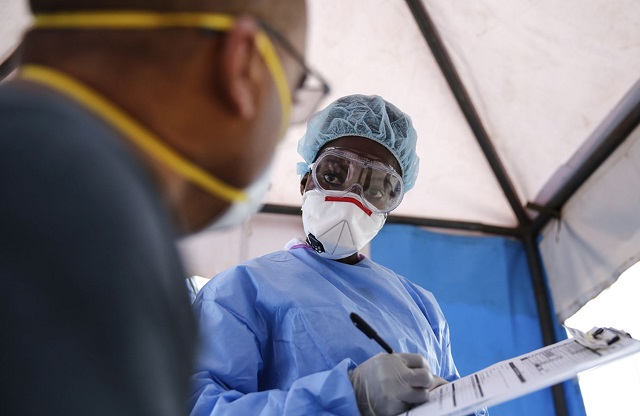
Beijing, China | XINHUA | Global COVID-19 cases topped 20 million on Tuesday, according to Johns Hopkins University, doubling the world’s total infections in 45 days.
With an effective vaccine still out of reach and many countries witnessing new records of daily surge of confirmed cases over the past weeks, the path to winning the COVID-19 battle remains fogged and the struggle uphill.
However, the new grim milestone of global COVID-19 caseload has at least once again offered the international community two major lessons.
One is that the arduous global pandemic fight should not be hijacked by short-term political gains and economic interests.
In the United States, the world’s COVID-19 epicenter since April, confirmed cases have exceeded 5 million and are still climbing. One can blame this on a lack of knowledge about this previously unknown virus. Yet the current U.S. administration, whose top priority at present seems to be securing its re-election in November, should also be held accountable for compromising public health for the sake of near-term economic performance.
“Scientists can provide evidence, but acting on that evidence requires political will,” The Guardian commented earlier. Although warnings have been issued repeatedly by many experts, it is more than clear that Washington has demonstrated a woefully lack of such political will.
Indeed, lockdowns and quarantines will disrupt or even halt normal business activities and social life, while mask-wearing makes breathing uncomfortable. But as an old Scottish proverb goes, better a finger off than aye wagging.
China’s anti-pandemic experience has proved that holistic measures, including massive testing, regionally-tailored lockdowns and national coordination, have helped effectively contain the spread of the virus, and thus secured the chance for the economy to bounce back.
The other lesson is that the international community should not allow this high-stake pandemic fight to be hijacked by protectionism or unilateralism.
In the face of the once-in-a-century pandemic, no country is able to claim a total victory alone. That means the ultimate triumph would only be possible if everyone works together.
UN Secretary-General Antonio Guterres said at the 73rd session of the World Health Assembly that, “We have seen some solidarity, but very little unity, in our response to COVID-19.” Thus the world community should do more to build up that much needed global unity.
For starters, a globally coordinated response is urgently needed in the joint fight against the COVID-19 pandemic.
Governments around the world should exhaust every possible avenue to cut cross-border chains of transmission of the pathogen, step up exchange of anti-pandemic experience and other useful information, and enhance cooperation in virus tracing as well as vaccine research and development in a scientific and inclusive manner.
At the same time, they should reject politicizing the outbreak or stigmatizing others, which will only cripple the valuable global solidarity the human race needs to overcome this unprecedented public health crisis.
Moreover, international coordination is needed to jump start a robust global economic recovery. Protectionism and unilateralism will only erect barriers, and create elements of uncertainties and division.
The international community should also join hands to improve the global governance system on the other side of the pandemic. A global joint prevention and control mechanism must be devised not only for public health crises but also for other shared challenges the humanity will have to confront in the future.
Short-term political or economic interests may be tempting and protectionist actions can sometimes deliver a temporary relief, but they will indiscriminately hurt the long-term and fundamental interests of the human race as a whole.
The COVID-19 pandemic is not the first global crisis testing humanity, and certainly will not be the last. Countries worldwide should demonstrate that they are wise enough to learn from the big lessons this time.
******
XINHUA
 The Independent Uganda: You get the Truth we Pay the Price
The Independent Uganda: You get the Truth we Pay the Price



